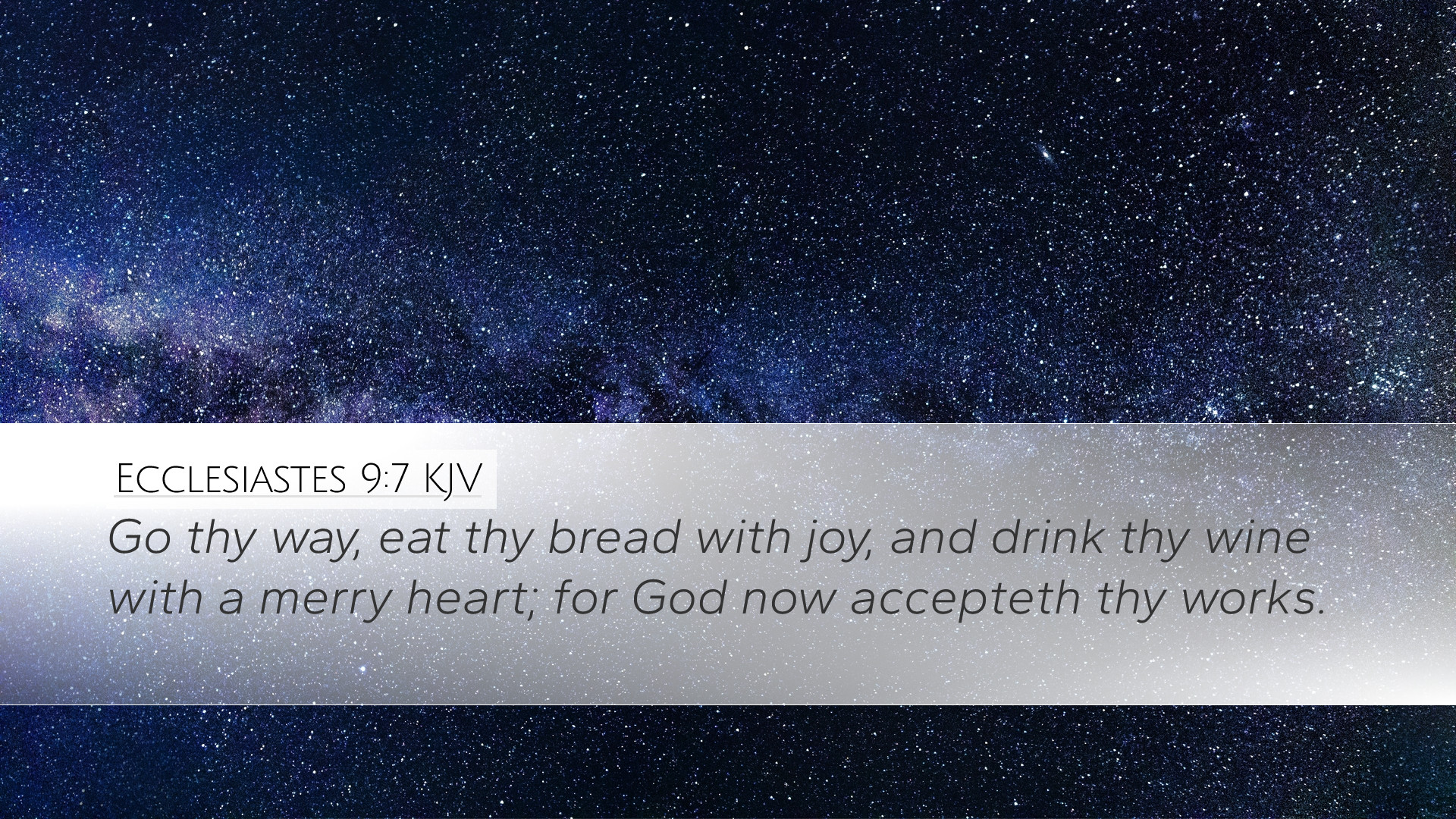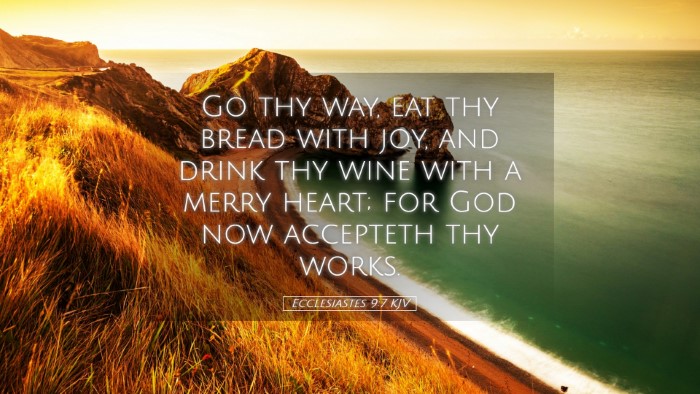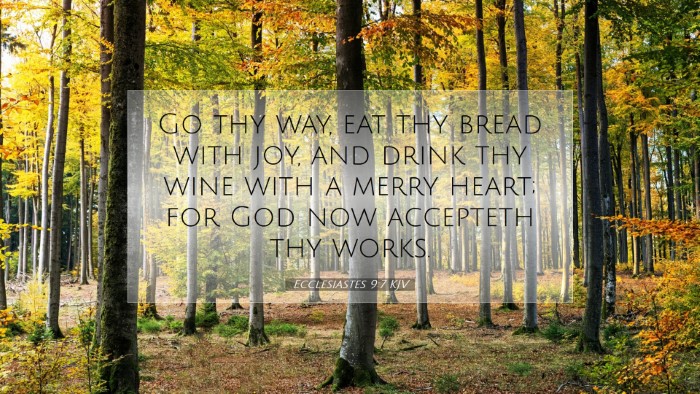Commentary on Ecclesiastes 9:7
Verse Context: Ecclesiastes 9:7 states: "Go, eat your bread with joy, and drink your wine with a merry heart; for God has already approved what you do." This verse shifts the focus from the uncertainties of life to the enjoyment of the present moment. In this commentary, we explore the insights from notable public domain commentaries.
General Overview
The author of Ecclesiastes, traditionally considered to be Solomon, contemplates the meaning of life in light of its transience. This verse serves as an encouragement to embrace joy and the good gifts of God amidst life's perplexities.
Exposition from Matthew Henry
Matthew Henry emphasizes the theme of enjoying life as an act of faith. He notes that the command to "go, eat your bread with joy" indicates that the believer is invited to partake in God’s blessings without fear. Life’s futility, often portrayed throughout Ecclesiastes, does not annul the simple joys that God provides.
Henry elaborates that consuming bread and drinking wine symbolize both sustenance and celebration. These acts reflect a heart of gratitude as believers acknowledge God's provision. In doing so, they exhibit trust in God's sovereignty over their lives.
Key Takeaways from Henry:
- Enjoyment of Life: Engaging in daily meals is not merely a routine but an opportunity to experience joy as a divine gift.
- Divine Approval: The phrase "for God has already approved what you do" suggests that God desires humanity to find happiness in His creations.
Insights from Albert Barnes
Albert Barnes approaches this verse with a focus on the imperative of enjoyment amidst mortality. He points out that the advice to eat with joy and drink with a merry heart is a reflection of a life lived under the awareness of God’s ultimate authority. Barnes asserts that this verse encapsulates the Biblical theology that amidst the vanity of life, genuine joy is found in God’s blessings.
Commentary Highlights:
- Life's Uncertainty: Barnes draws attention to the transient nature of human existence, emphasizing that recognizing this allows one to appreciate life's fleeting pleasures more fully.
- God's Favor: The assurance that "God has already approved what you do" imparts a sense of peace, suggesting that living joyfully is within God's plan for humanity.
Reflections from Adam Clarke
Adam Clarke provides a theological reflection on Ecclesiastes 9:7, noting the spiritual implications of experiencing joy in everyday activities. He underscores that enjoying food and wine is not solely about physical pleasure but should also be viewed as an act that turns one's heart towards God.
Clarke highlights the existential reality presented in Ecclesiastes, where life can often seem futile due to the inevitability of death. Consequently, the exhortation to enjoy life is a reminder to cherish what God has granted amidst life's brevity.
Clarke’s Key Points:
- Spiritual Enjoyment: Clarke differentiates between mere indulgence and joyful consumption as an act of worship, promoting a lifestyle that honors God.
- Temporal and Eternal: He urges readers to view earthly pleasures in light of their impermanence, using these occasions to cultivate a deeper relationship with God.
Application for Pastors and Scholars
Ecclesiastes 9:7 invites pastors, students, and theologians to reflect on the integration of joy within their ministry and personal lives. The call to joy is not a dismissal of the serious contemplation of life's challenges but rather an invitation to celebrate God's gifts amid them.
Pastors can employ this verse in counseling congregants who may struggle with despair and hopelessness. By encouraging the enjoyment of simple pleasures, they can lead believers to see God's hand in their daily lives.
Church leaders might also consider the importance of communal gatherings centered around meals and celebrations, promoting community and shared joy as expressions of faith.
Conclusion
Ecclesiastes 9:7 stands as a profound reminder of the balance between recognizing life's temporality and embracing the joys God provides. Drawing from the wisdom of Matthew Henry, Albert Barnes, and Adam Clarke helps enrich our understanding of this text and urges believers to live joyfully in the present.


